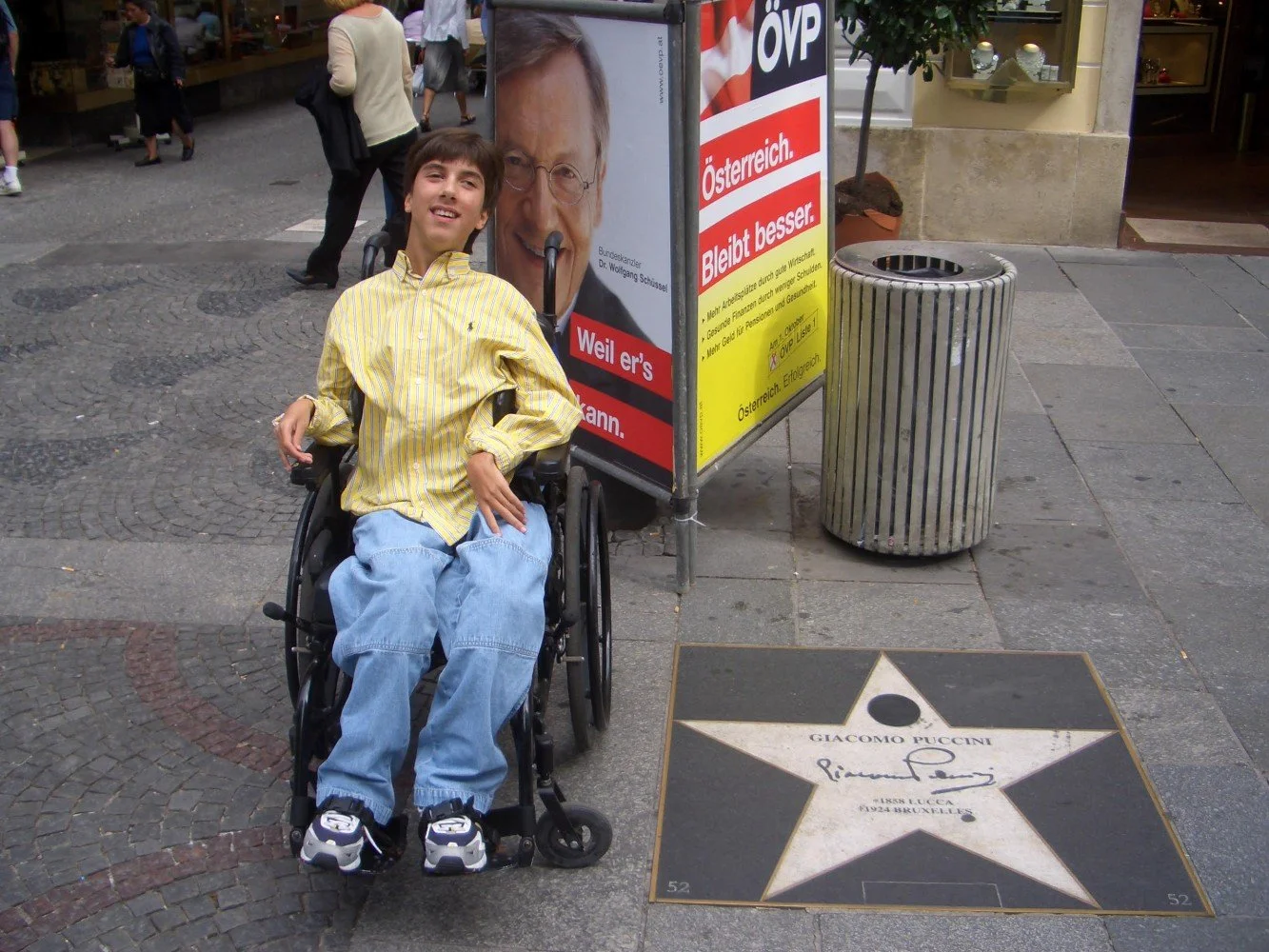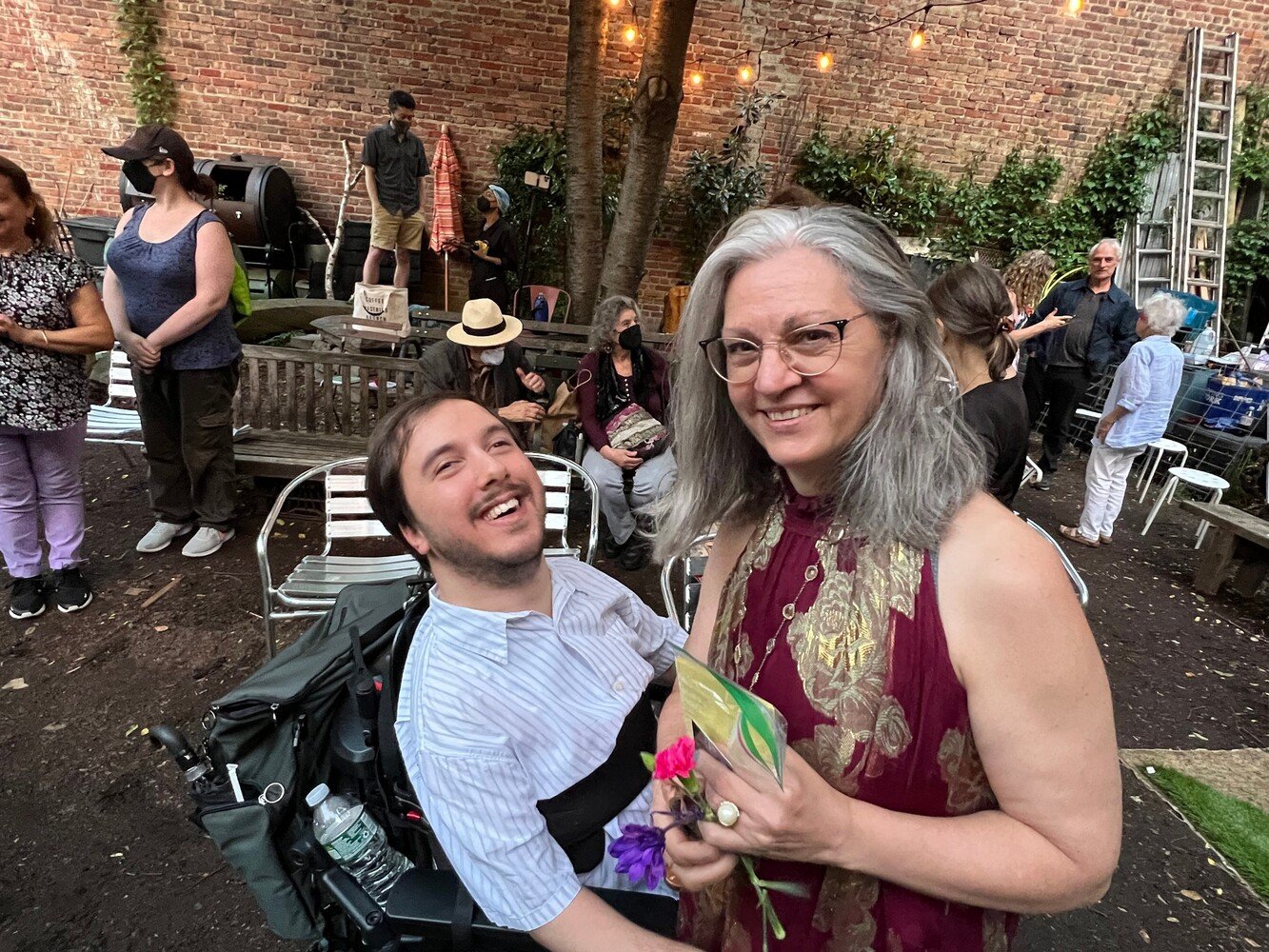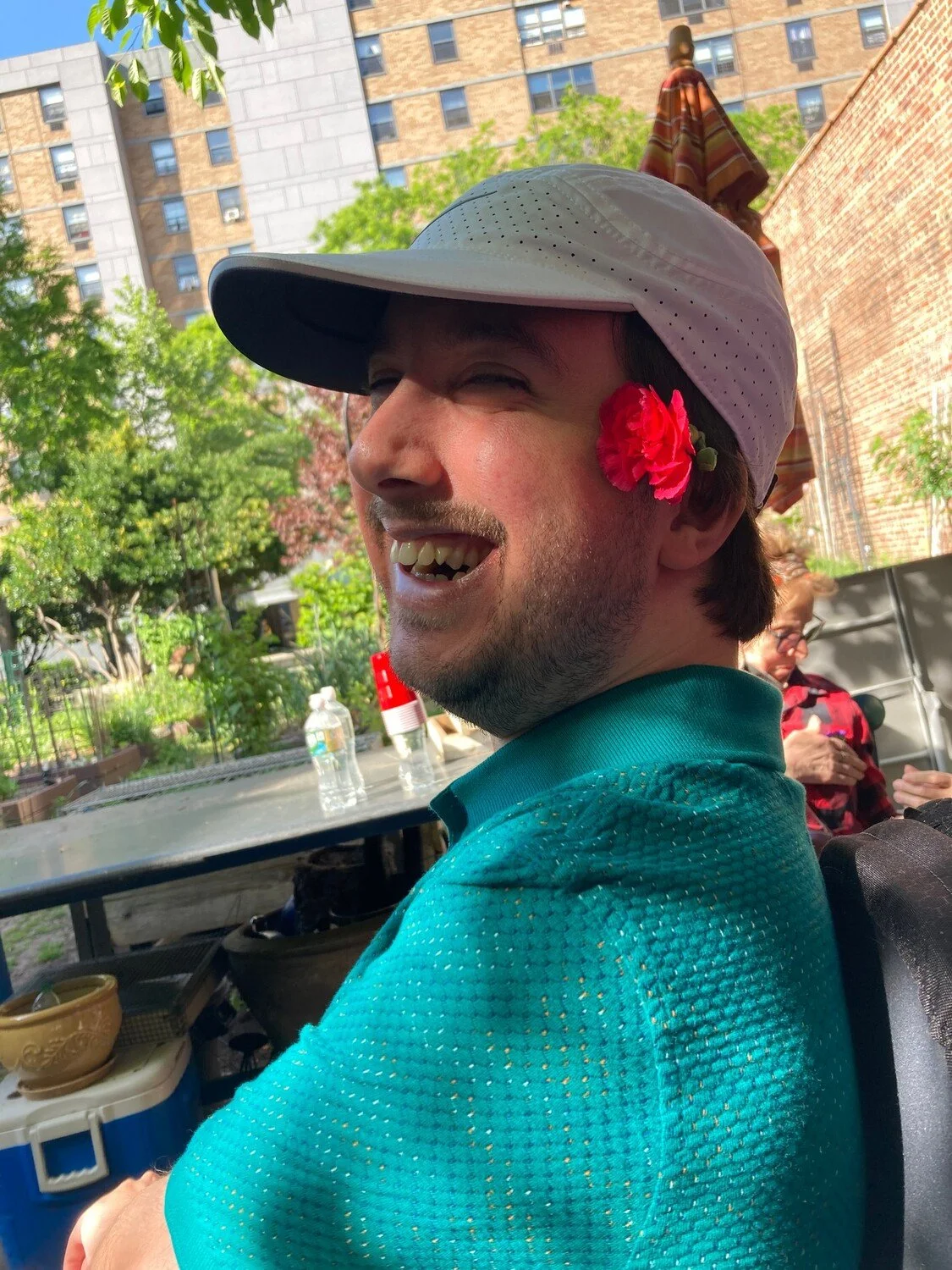When You Give a Kid in a Wheelchair a CD of The Magic Flute...
At two years old, I had major back surgery (a dorsal rhizotomy) because of my Cerebral Palsy. The surgery kept me in the hospital for four months, recovering, and during that time, my love for opera first sparked. My aide at the time, Judy, had given me a CD, Mozart's Magic Fantasy, a recording of Mozart's The Magic Flute told through the eyes of a little girl who fell asleep at the opera and began to dream she was living in the piece. I listened to that CD repeatedly as I lay in my hospital bed, mesmerized by the Queen of the Night and thankful for the journey Magic Flute took me on far away from that hospital bed.
Looking back, it seems only fitting that my lifelong passion started during a not-so-enjoyable moment due to my CP. Growing up in an able-bodied community, my view of my disability differed from others in similar situations. As a result, I've carried myself through life without the constant overhanging awareness that my CP would impact my day, and even while stuck in a hospital at the age of two, I didn't let my CP stop me from finding joy in something that would become so integral in my life. Because of this, it's also not surprising that I first started attending operatic performances with my parents at the same age that I first truly understood my disability from a physical perspective. There was no big "Ah-hah" moment; it suddenly hit me that I would never walk unassisted. I was eight years old and had a new perspective on my disability. A perspective that would change and grow just as I would in the years to come.
My relationship with my CP would change over time, but I'd always do my best not to allow it to limit my life and choices. Even when faced with obstacles during my college search, I pushed until I found a school that fit my needs and wants. In high school, I decided to pursue a career within the opera industry and confronted the big question of where I could fit. Due to my disability, I didn't sing or perform in the typical ways I had seen during my years of attending the opera, so I figured the best place for me to be a part of the art I loved was to write about it. Unfortunately, many college programs had performance requirements in their curriculum, which my CP kept me from completing. Beyond that, I was geographically limited due to the at-home help I needed. Finally, after a long search, I found my way to Fordham University's Musicology program, where I encountered four other students in wheelchairs. Four may not seem like many, but for someone like me who had no exposure to other kids and young adults living in wheelchairs, this was a big deal.
Our Co-Founder, Gregory Moomjy, growing up.
Even though I didn't know others with physical disabilities like mine growing up, I connected with the characters in the operas I saw with my parents. While most of the pieces did not include characters with disabilities, I saw my experience as someone with CP in their stories. So many operas explore themes that, as a disabled person, I grapple with every day. Aging, the passing of time, and the conflict between what someone wants to do and what they have to do; as I grew up, these themes became bigger and bigger in my own life, and watching them explored in opera pieces made me feel seen in a way I was not familiar with. One opera that has been a constant connector for me is Der Rosenkavalier. I've seen this piece many times over the years with my high school music teacher, Mr. Millar, and every time, we find ourselves discussing how much Princess Marie's monologue on the passing of time resonates more and more as time goes on. For Mr. Millar, the everyday reality of aging causes him to identify with the piece, but as someone with CP, it is a much more complicated perspective that I have. When you spend large chunks of time in surgeries and hospital beds, your perception of time becomes warped. As a child, weeks can seem like months, and months can seem like years. There is so much you can experience and explore in a day as a child. So much is new, and so much is unknown. But when you spend months of those early childhood years sitting in a hospital room, the time seems to go by faster. So much less is discovered in those months. There is far less to explore inside a hospital's walls than in the world outside. For me, Princess Marie Theresa's want to stop time is something I have felt for as long as I can remember. It hasn't taken me years of aging to understand that desire. It has ALWAYS been a deep desire for me.
Even though I saw so much of my own experience in the opera, it was not until I was in college that I saw how you could rework classic operas to include performers with physical impairments and amplify the story by adjusting the view frame. The first example of this for me was watching Joyce DiDonato in a production of The Barber of Seville. Now, Joyce does not have a physical disability, but during this production, she broke her leg during the opening night performance. She went on to perform the show on crutches before being taken to the emergency room, where she was eventually put in a cast and a wheelchair until her leg healed. As a result, the entire production had to be reconfigured to accommodate Joyce's wheelchair for the remainder of the opera's run. I stumbled upon this production on YouTube, and while I certainly didn't expect to find myself crying to a comedy, there I was with tears in my eyes as I watched Joyce DiDonato perform Contro un Cor, conveying this intense level of intimacy through the experience of someone in a wheelchair. I hadn't fully realized the potential of adapting stories and operas to fit the abilities, or rather disabilities, of the performers in creating a production with extensive emotional depth. I was lucky enough to meet Joyce DiDonato not long after this and shared with her the impact that performance had on me as someone who has lived life from the seat of a wheelchair. We both broke out into tears, and I relished the moment as I realized I had a new purpose and place in the opera industry.
Co-Founders, Greogory Moomjy and Marianna Mott Newirth, at Opera Praktikos production of Orlando.
With that seed planted in my head, I went on to work within the world of opera, writing articles and reviewing numerous productions, all the while wondering how I could take my personal experience and help bring disability creativity into the industry I loved so much. It was not until 2015, when I began speaking with a librettist at the National Opera Center, that the idea for Opera Praktikos started to grow. This librettist, of course, was my future partner and Opera Praktikos co-founder Marianna Mott Newirth. Speaking with Marianna that day, we became fast friends and spoke of our dreams of running an opera company. I knew I wanted whatever company I ran to include productions where the stories connected more clearly to the disabled experience and artistry. Back then, we didn't know exactly the words to describe what our goal was to others, but in 2022, HowlRound published Morgan Skolnik's essay "Moving from Disability Visibility to Disability Artistry," and our mission became as clear as ever. Skolnik defined disability artistry as "work that is informed, from the beginning and down to its core, by some aspect of the disability experience. This doesn't necessarily mean it needs to be 'about' disability, but rather it can embrace a disability aesthetic or feature complicated characters whose lives include disability." For me, this concept is precisely what I had witnessed when watching Joyce DiDonato in The Barber of Seville, and to see the idea so well defined by others in the industry showed me the exceptional potential that my dreams and Opera Praktikos had in altering not only the opera industry but the arts as a whole.
Our Co-Founder, Gregory Moomjy, at rehearsal for Opera Praktikos production of Orlando.
As I reflect back, I see that it wasn't my Cerebral Palsy that limited me in life, but instead, it was my CP that led me to where I am today. The exact place I was meant to be. So many people assume that those of us with disabilities find success in life in SPITE of our disability, but my hope is that I can show those people that it's precisely the opposite. It has been my disability that has allowed me to understand life and opera on a level that many others may not have the ability to. It has allowed me to see stories and art as so much more than entertainment but as a way of communicating the differences in life experiences and connecting people on a larger scale.




